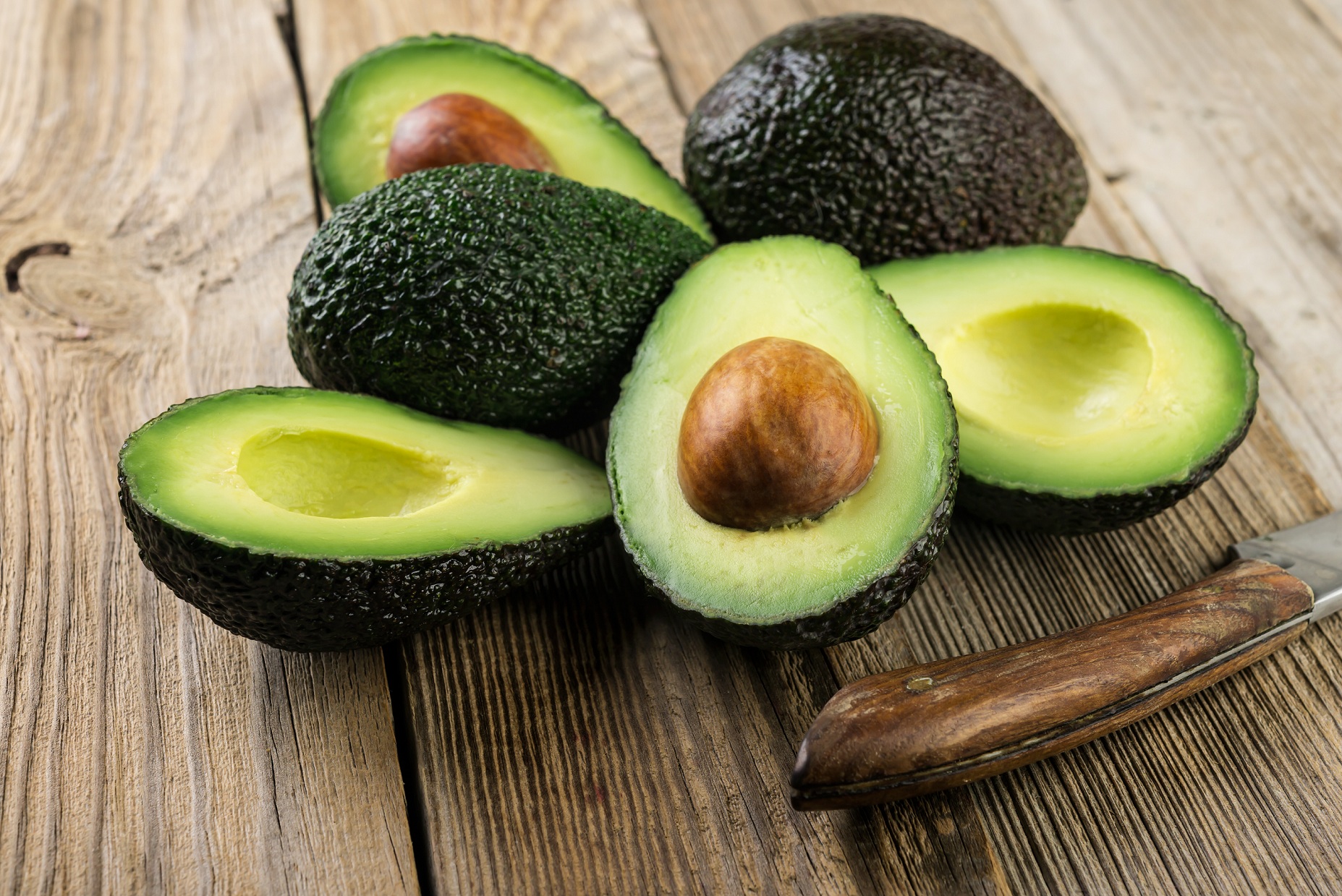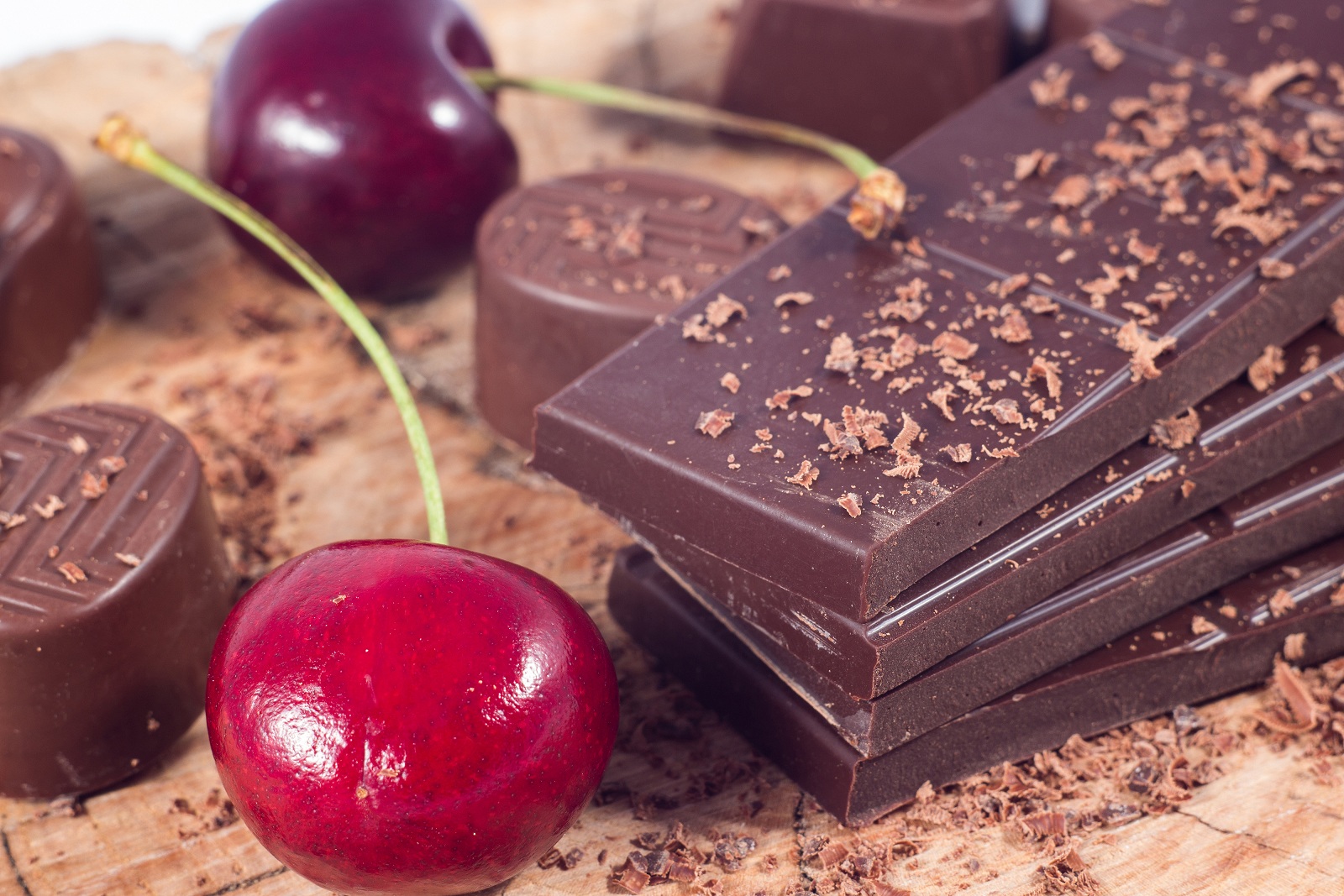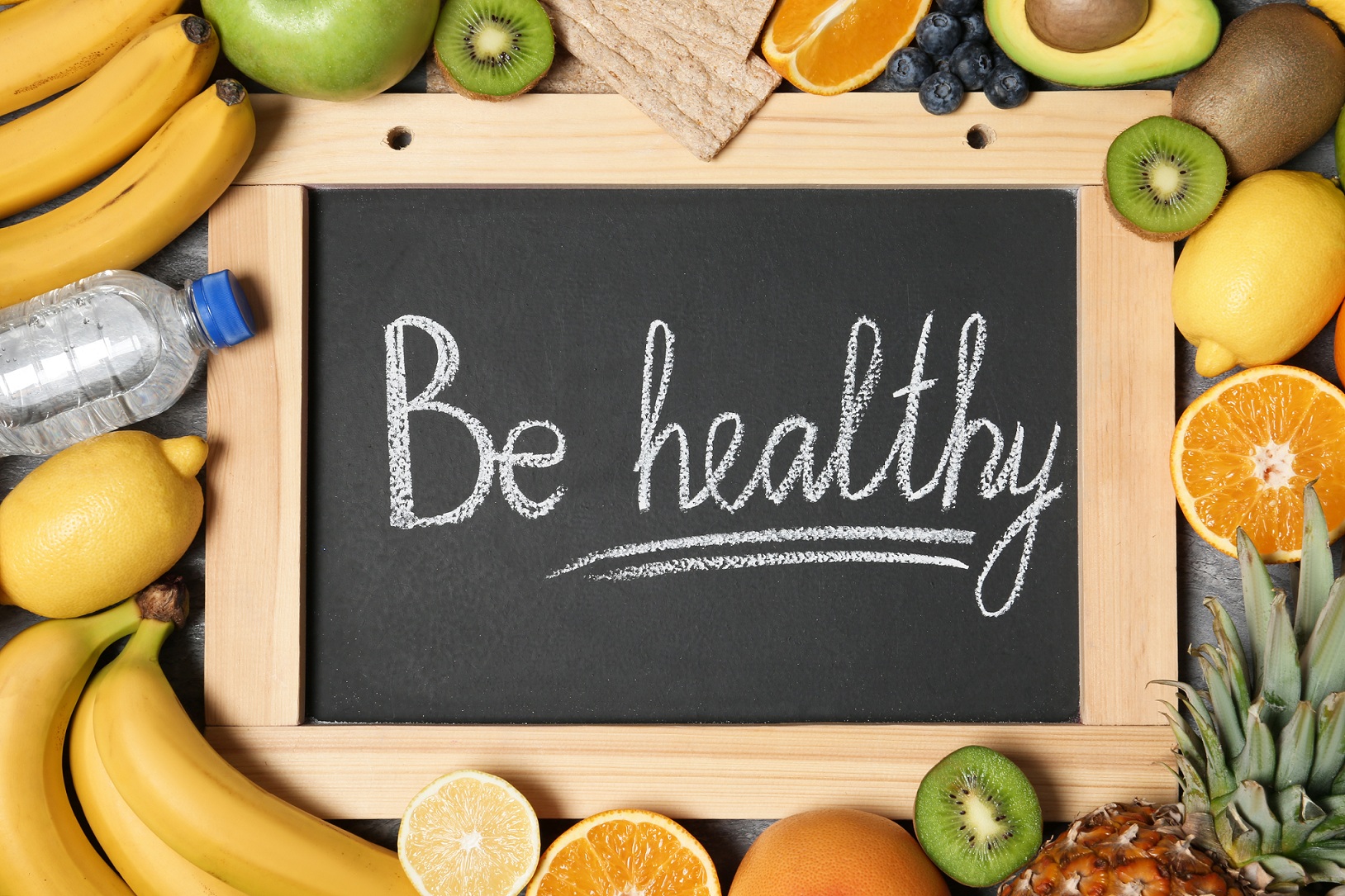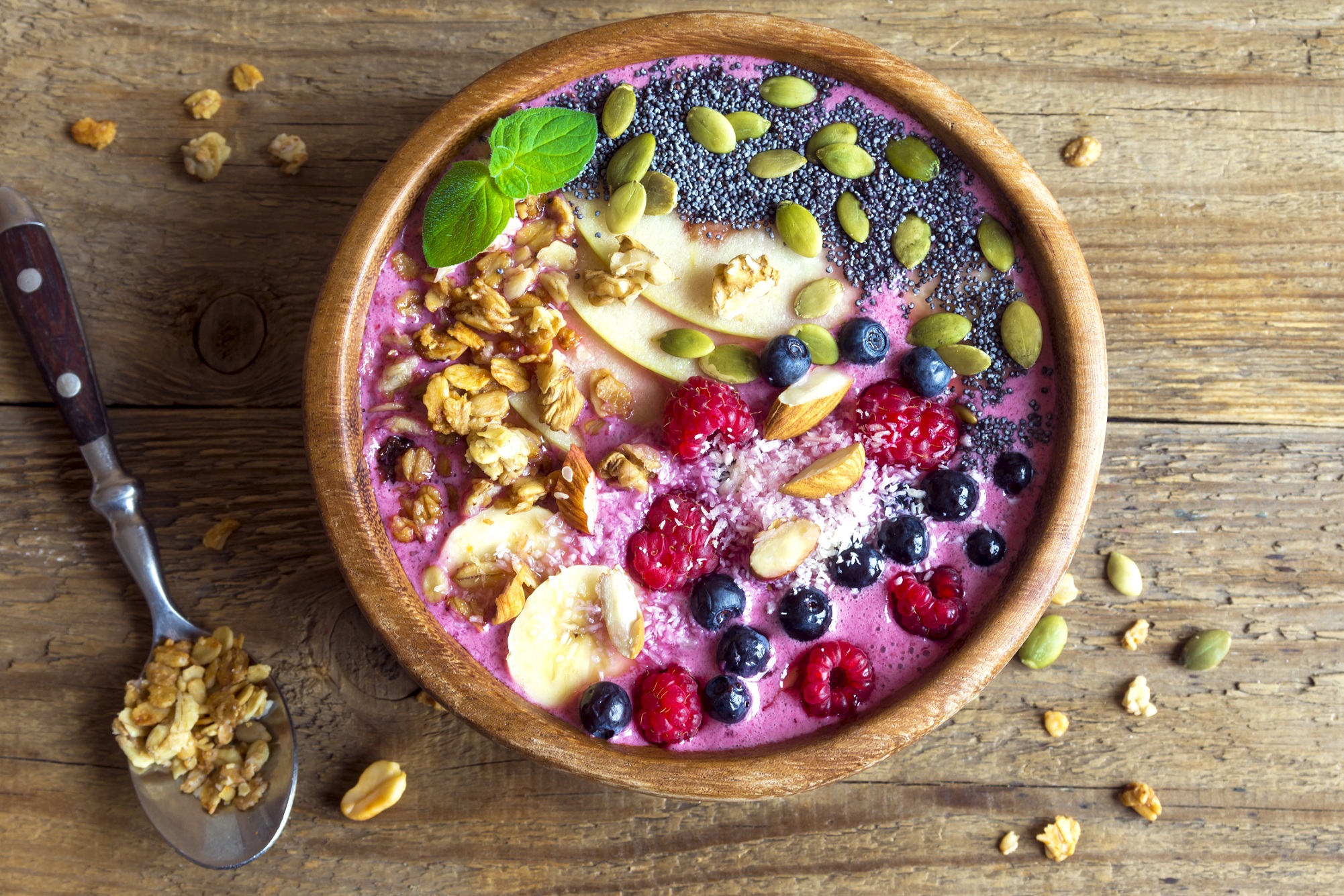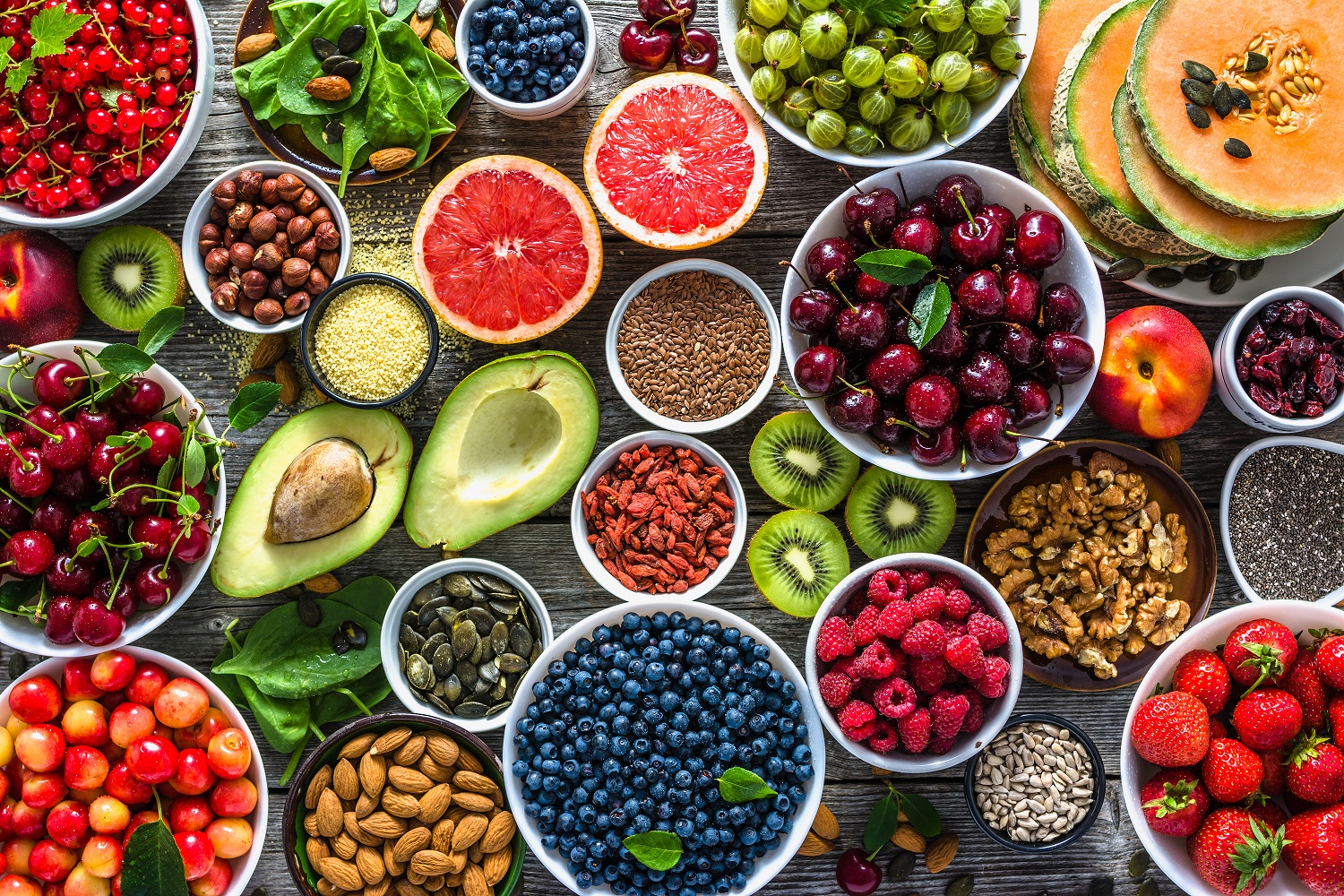-
Brought to you by Google News. Read the rest of the article here.
-
Superfoods in the News1 Min Read
Brought to you by Google News. Read the rest of the article here.
-
Many people give little consideration to the avocado. However, this humble fruit has been categorized as a perfect food, which should be a staple in your diet. Avocados are not only versatile making a great snack, dip or even main course dish, they can also provide some great nutritional benefits. There are a number of reasons why you should choose to eat this tasty treat, but here are just the top three.
They can provide essential healthy fats:
The human body needs fat to produce hormones, regulate body fat and control mood. However, many people are concerned about cholesterol and avoid all fats. This is a mistake as consuming good fats can actually help to reduce the levels of bad cholesterol in the body. Avocados are an excellent source of healthy fats. They contain Omega 3 and Omega 6 fatty acids, and oleic acid, which are needed for a healthy heart. While many people may obtain their omega oils from fish, avocados provide a great plant based source, which is unaffected by sea pollution and heavy metal contamination.They contain all the essential amino acids:
There are eighteen amino acids which are essential to the body in order to create a complete protein. While many people obtain these amino acids from animal protein, avocados can provide an excellent plant based source. Unlike animal proteins, which require the body to break down the complex forms into a usable amino acid, an avocado contains all of the eighteen amino acids. These are available in a simple form, which can be easily used by the body according to how it is needed. Additionally, whereas animal proteins can be contaminated by hormones and antibiotics fed to the animal during its lifetime, the avocado provides a completely healthy and inexpensive way to gain all those essential amino acids.They are packed with other nutrients:
The avocado is simply packed with amazing levels of nutrients. They are full of vitamins and minerals, phytonutrients and enzymes, which are beneficial to the body. One of the most beneficial nutrients, which is often deficient in many people’s diet is magnesium. Magnesium is an essential component of in excess of three hundred metabolic cellular functions and is found in significant quantities in the avocado. The fruit also contains Vitamin A, C, E and K, in addition to the majority of the Vitamin B complex. Since vitamins are ineffective without adequate minerals, and both vitamins and minerals cannot travel to the cells of the body without the proper enzymes, the avocado provides the complete nutritional package. It provides significant levels of vitamins and minerals together with the necessary enzymes to ensure that you enjoy maximum nutritional benefit from consumption. The fruit also contains phytonutrients, which have been linked to reduced risk of developing a number of conditions including heart disease and diabetes.Preparing an avocado is simple and easy. Although many people advocate using organic fruits and vegetables, the avocado is not toxic and you can confidently eat non organic versions. Fresh ripe avocados feel slightly soft when they are gently squeezed, although you can purchase harder green fruit and allow them to ripen in your home. You should remove the avocado skin by cutting just deep enough to peel it while preserving the darker green area, which contains many nutrients. Alternatively, you can cut the fruit in half, remove the large stone and simply scoop out the flesh. Next time, you are looking for a tasty snack treat, why not give yourself a health boost with some homemade guacamole. This superfood snack is simple to prepare by mashing the avocado with a little olive oil, pepper, sea salt and crushed garlic. You’ll find it tastes so good, you won’t even know that its great for your health.
-
There has been a great deal of attention in the media regarding the potential health benefits offered from consuming chocolate. While in the past, healthy eating plans meant that chocolate would need to be eliminated from the diet. Chocolate is considered to be sinful in many weight management programs. However, a good quality chocolate high in cocoa solids, can offer a number of beneficial effects, which can boost your health and well being.
Helps to maintain BMI:
While eating sugary candy bars is not an ideal method for controlling weight, recent research has demonstrated, that consuming high quality chocolate, can be beneficial when trying to maintain optimum BMI. The research study had a varied age range of participants from 20 through to 85. The research team documented that participants regularly consuming good chocolate generally had a lower BMI. The participants with lower BMI levels were documented to have excellent eating habits, including exercising regularly three or four times per week, and eating chocolate twice in an average week. It is also believed that the antioxidants present in the chocolate may balance out hormone levels in the body.Skin improvements:
High quality chocolate contains flavanols, which are shown to be beneficial to the skin. A study conducted in Germany had participants consume enriched cocoa daily over a three month period. At the end of the study, the participants felt their skin was smoother and better hydrated. There was also less propensity towards redness and inflammation of the skin after UV light exposure.Boost to brain power:
Many people experience a sugar rush from an afternoon candy bar. However, a study conducted at England’s Northumbria University found that this is not necessarily an imaginary effect. The research team studied the impact on mathematical skills from consuming chocolate. Thirty participants answered mathematical questions both before and after consuming hot chocolate. The findings indicted that mathematical performance was improved after drinking the chocolate. This is attributed to the flavanol content within the chocolate.Cough relief:
Coughing is a common symptom of cold, allergies and winter related complaints. However, researchers have suggested that the chemical theobromide derived from cocoa, can reduce activity levels in the region of the brain which triggers coughing reflexes. The research team, working on behalf of the National Health Service in the United Kingdom, administered theobromide to three hundred study participants who were suffering from a persistent cough. After the fourteen day study period, sixty percent of the study participants reported experiencing relief from their coughing.Reduced risk of serious conditions:
The flavanols present in high quality chocolate, have been linked to a reduced risk of a number of serious conditions, including type 2 diabetes and cardiovascular disease. It is thought that the regular consumption of high quality dark chocolate, lowers the proteins levels in the blood, thus improving heart health. Additionally, there is speculation that it also increases insulin sensitivity, which lowers the risk of developing diabetes.There has been no firm definition of the term superfood. Many people believe that it refers to a food in which the potential health benefits far outweigh the calories. Others believe that it simply refers to a food offering plenty of health benefits. Regardless of which definition of superfood you choose to believe, the potential health benefits of high quality chocolate should not be overlooked. In order to optimize these benefits you should choose a high quality dark variety of chocolate, which contains very high levels of cocoa solids. This increases the amount of flavanols and increases the potential health benefits. Just remember, that like most foods, the old adage of “everything in moderation” should be applied.
-
Superfoods have received a great deal of attention in the media. Health experts are continually expressing the opinion that more people should be incorporating superfoods into their everyday diet. However, there has also been some speculation as to whether some superfoods could actually be harmful to health.
The dangers of kale:
In recent years, kale has become a firm favorite of the superfood crowd. Many people are now eating healthier kale chips rather than fried potato snacks. However, there have also been reports that consuming kale can result in fatigue, hyperthyroidism and weight gain. So, should you be concerned?Kale has been eaten for centuries without causing health problems. However, as with any food, if eaten in excessive amounts, it’s not a healthy balanced diet. The main reason why kale has gained some negative publicity, is due to the interaction of this leafy green vegetable with certain medications. Many people believe that it is the introduction of foreign artificial chemicals which are actually the problem, rather than the kale. Of course, if you are eating large amounts of kale every day of the week, you should consider the phrase “too much of a good thing”.
Excessive consumption of cruciferous vegetables such as kale, has been linked to an increased risk of developing hyperthyroidism. A recent example was the case of a woman in her eighties, she was consuming up to three pounds of raw bok choy, every day, over the course of several months. Consequently she developed a severe case of hyperthyroidism. Medical experts suggest that this is because of the glucosinonlates contained within cruciferous vegetables. Large amounts of these compounds can create goitrin, which can interfere with the synthesis of thyroid hormones.
Eating superfood greens safely:
So, while there is a small chance of danger from green superfood vegetables, they should still form part of a healthy balanced diet. However, some basic precautions can ensure that you eliminate the potential risk of medical complications. The first rule of thumb is to not to eat excessive quantities of leafy greens raw each day. Generally, anything more than eight ounces each and every day could put you at risk. You should limit your leafy greens to one serving each day. With in excess of 10,000 vegetables to choose from, there is a wide selection to keep your vegetable choices varied and interesting.The second guideline is to vary the greens you are eating. There are twenty varieties of leafy greens to choose from, such as kale, bok choy, spinach, and chard, amongst others, so mix it up. There are also approximately fifty other varieties of green vegetables as well, so don’t become obsessed with one particular vegetable. The key to a healthy diet is balance.
Finally, try to eat your greens cooked rather than raw. Although raw vegetables may seem healthier, in the case of leafy greens, the goitrogenic components become virtually negligible if cooked. Severely limit the amount of raw leafy greens in your diet and if raw veggies appeal, consider others such as carrots or celery, which pack a nutritional healthy punch when raw.
The potential danger of superfoods seems to have become a little blown out of proportion. While many people may be tempted by the idea of a magic bullet to cure all ails, a healthy diet is all about balance. You should be aiming to consume a wide variety of fruits and vegetables in all colors to keep your plate looking appetizing and appealing. A balance of colors in all of your superfoods choices will ensure that you obtain a wider selection of vitamins, minerals and antioxidants. This will keep you feeling fitter and healthier in the long run.
-
While many people are concerned about healthy eating, a great number fail to realize the impact that a healthy diet can have on their skin. The old adage “you are what you eat” has never been more applicable. If you want beautiful skin, you really should consider incorporating superfoods into your diet. Nutrient dense superfoods can help you to manage your weight, provide protection from diseases and reduce the signs of aging. The population of the United States spends billions of dollars on skin products, yet many people could have beautiful skin with some basic dietary changes.
Why superfoods?
The beauty industry has flourished over the years, creating products to hide imperfections and unattractive features. Many manufacturers use superfoods as ingredients to improve the effectiveness of their products. So, why not go straight to the source? Often, busy people resort to processed foods or fast food dining to make their life easier, but this can take a great toll on their skin. These types of foods are high in saturated fats and low in vitamins, this can leave skin dry, damaged and wrinkled. So, if you’re prone to spots or have rough dry patches, you should consider adjusting your diet.Protection from the sun:
One of the major causes of skin damage is over exposure to the sun. While some degree of sunlight is needed to assist the body in synthesizing Vitamin D, over exposure can cause inflammation, wrinkles, dryness and spots. However, it is possible to protect your skin from the sun by adjusting your diet. Vitamin E and lycopene are antioxidants, which can protect the cells from free radical damage caused by ultraviolet exposure. Lycopene can provide a protective shield from the UV damage, while Vitamin E restores and repairs the skin cells. There are a wide range of lycopene rich foods, including tomatoes, watermelon and pink grapefruit. Vitamin E can be found in spinach, olives and nuts.Combating acne:
Acne can affect people of any age and can be a real blow to the self confidence. Acne is often caused by hormone changes, making it more common in adolescents but it can be mitigated by changing your diet. This can affect the severity, intensity and the duration of an acne breakout. Vitamin A is nature’s skin exfoliate. It is often used in topical creams prescribed for the treatment of acne. Vitamin A can restore the softness and glow of healthy skin. Foods rich in Vitamin A include leafy greens such as kale, collard greens and spinach, as well as carrots and peppers.Counteracting redness and inflammation:
Inflammation and redness can be the result of an acne outbreak or other skin conditions such as eczema or psoriasis. Additionally, you may experience inflammation or redness because of changes in weather temperatures or other environmental factors. However, this can be counteracted with a quercetin rich diet. This natural flavanoid is both anti-inflammatory and an antihistamine. This reduces swelling in inflamed skin, reducing the redness. Sources of quercetin include apples, broccoli, citrus fruits, capers, green tea, leafy green vegetables, red grapes and tomatoes.Anti aging:
The signs of aging are often most apparent on the skin. As we age, skin can lose elasticity and become dry and wrinkled. This is the result of decreased levels of collagen and elastin within the fibers of the skin. Many people resort to the chemical treatment botox, but Vitamin C can provide a natural solution. Vitamin C can strengthen collagen in the skin and reduce the appearance of wrinkles. Additionally, Vitamin B can repair and rebuild the elastin and collagen in the skin fibers. Vitamin B can be found in whole grains and brewers yeast. Great sources of Vitamin C include citrus fruit, cabbage, kiwi, red pepper and papaya.Moisturize dry skin:
Dry skin is often a sign of water loss in the body and dehydration. As we become older, the skin has a greater difficulty in retaining moisture, which can result in rough dry skin. Omega 3 oils can assist the body in preventing the loss of water from the skin cells, keeping the skin hydrated. This in combination with the correct water intake can moisturize dry patches and encourage supple healthy skin. Good sources of Omega 3 include flax seeds, avocados, nuts, and olives.Cosmetic beauty treatments and products can be extremely costly, but you can achieve great results with some basic dietary changes. Superfoods also have a number of other health benefits, so not only will you have beautiful skin, you should also feel fitter and healthier, with less chance of developing a number of medical conditions. So, why spend hundreds of dollars on the latest skin cream, use natures beauty treatments and have a superfood enriched diet.
-
Many people are aware of the important role super foods play in a healthy balanced diet. However, many people also find the cost of these foods to be prohibitive. Research has supported this perspective, healthier options are generally more expensive than processed or junk foods. This opinion can encourage people into believing that these nutritionally dense super foods, are not readily available in their budget. However, there are many excellent super foods which are perfect for a more modest budget.
1. Banana:
Most people overlook the wonderful nutrition offered by the humble banana. Bananas are readily available in most grocery stores and are usually fairly inexpensive. Considered nature’s ready made snack, the banana is perfectly suited to carry in your bag and packs a great nutritional punch. On average bananas contain significant levels of potassium, fiber, Vitamin C and Vitamin B6. Research has highlighted that a banana can provide a boost of energy when you need a lift in mood and are sweet enough to satisfy sugar cravings.2. Potato:
While the potato is commonly considered a junk food, this is not really accurate. Unless it is served with added fats or deep fried, the potato is actually a healthy food option. The potato contains potassium, fiber, Vitamin B and Vitamin C. They are one of the most readily available and cheapest staples in the grocery store. Eating the potato skin increases the fiber intake, so the best potato options are new boiled in their skins or baked. Sweet potatoes are also an excellent source of nutrition.3. Beans:
There are a wide variety of beans available and most provide similar amounts of nutrients including protein and fiber. Beans are an excellent dietary option to increase overall health and well being, including cardiovascular health. Dried beans are relatively inexpensive and easy to store long term. Only half a cup of beans contains the equivalent amount of protein as a single ounce of meat. The maximum amount of nutritional benefit from beans is to combine them with some type of grain. When consumed together, this creates complete proteins, from non animal sources. These proteins contain all of the essential amino acids necessary for health and well being.4. Cabbage:
Cabbage is often one of people’s least favorite vegetables. This is usually due to it being over cooked or served day after day as part of a school lunch. However, cabbage is actually a very nutritious vegetable. It contains potassium, fiber, Vitamin C and antioxidants. For optimum nutritional benefit, cabbage should be lightly cooked, by steaming or stir-frying.5. Oats
An oat based breakfast is probably the best way to start the day. Oats are filling and contain manganese, magnesium, phosphorus and thiamin. Oats have also been shown to reduce cholesterol and improve digestive health. Oats can be easily made into granola or oatmeal as an inexpensive and healthy breakfast, additionally fresh or dried fruit can be added to boost the vitamin levels and taste.
Trying to maintain a healthy diet on a restrictive budget can be challenging. However, it is not impossible. There are many lower cost healthy foods, including these super cheap superfoods, which can boost the nutrition content of your diet without straining your budget. Adopting a few dietary changes to incorporate these foods will not only provide more energy, but should allow you to feel fitter and healthier. -
Many people are concerned about maintaining a healthy balanced diet. This has meant that a great number of people are interested in incorporating superfoods into their daily diet. While the summer months offer a wide array of delicious and brightly colored berries, to boost the nutritional content of a diet, many people struggle to find superfoods during the colder winter months. However, there is a wide range superfoods that can be easily sourced in winter.
Dried Berries:
While fresh juicy berries are appealing in the summer months, these are often seasonal and unavailable when the weather is colder. However, there is a wide range of dried berries, available in health food and grocery stores throughout the year. Dried berries such as goji, acai or blueberries can make a fantastic addition to your breakfast cereal or as a healthy snack. They are still packed with plenty of nutritional benefits and can add a boost of vitamins to keep coughs and colds away.Frozen Berries:
This is another convenience for the winter months. You can either purchase frozen berries from your grocery store or plan ahead in summer by freezing seasonal fruit. Frozen berries may not be as appetizing to eat on their own, but they can add a great nutritional boost to a smoothie or juice. For example, frozen blueberries are a great stand by to create a delicious smoothie to cheer you up on a cold winter day.Dark Chocolate:
Nothing says winter like enjoying a rich cup of hot chocolate by the fire, but did you know dark chocolate is considered a superfood. You will need to choose a brand which has a high percentage of cocoa solids to gain the optimum health benefits. However, this can be an easy way to enjoy a sweet treat packed with health boosting flavanols. You can either eat the dark chocolate or grate an ounce of dark chocolate into a mug of your preferred milk. Heat this gently over a low flame, stir well to achieve a rich consistency. You can even add in some health boosting spices, such as cinnamon for an even greater nutritional impact. Just be sure not to boil your milk as this will compromise the taste. If you are concerned that the milk is getting too hot, remove it from the heat and stir as the chocolate will continue to melt.Winter Greens:
Winter green vegetables such as cabbage are also powerful superfoods. Cabbage contains a great range of nutrients such as Vitamin B6, manganese and dietary fiber. However, it also has cancer fighting properties and contains phytochemicals which can assist the metabolism of estrogen. While you may have been deterred from cabbage in the past, set aside those school lunch nightmares, as it’s worth revisiting this amazing nutritional powerhouse. Cabbage should be lightly cooked to retain the nutrients and keep it’s delicious flavor. If you still can’t stomach the thought of cabbage, why not look at kale, collard greens, broccollini or Brussels sprouts.Potatoes:
Potatoes have unfairly got a bad reputation. Cooking them in oil, as fries or roasted potatoes, does not optimize their nutritional value. However, the humble potato does provide some great health benefits. If you also eat the skin of the potato, you can gain up to 45% of your Vitamin C daily requirement, in addition to 18% of the recommended daily amount of potassium. Potatoes naturally contain no cholesterol or fat, they are a good source of protein and fiber. Try baking your potato, just avoid smothering it with sour cream or butter for maximum nutritional benefit. If regular potatoes don’t appeal, why not opt for a sweet potato. Just remember to consider the method of cooking to avoid extra calories and fat.The colder winter months can be a challenge to a healthy eating plan. The cool temperatures often encourage comfort eating of carb rich heavy foods. However, by adding winter superfoods to your diet, you should feel happier and healthier, standing more chance of fitting into your bathing suit when the warmer months finally arrive.
-
With an estimated sixty percent of the adult population in the U.S. classified as overweight, weight loss has become big business. There are a wide variety of weight loss products and plans available, many are based on artificial chemicals or unsustainable diets. Medical experts maintain that the most effective method of weight loss is calorie restriction. This leads many people to increase their consumption of fresh fruits and vegetables. Many of these are superfoods, but are there specific superfoods which could aid your weight loss?
Eating a healthy balanced diet with plenty of fresh fruits, vegetables and superfoods is the key to good nutrition. This can not only aid in weight loss and management but can also boost your immune system and encourage an increase in your rate of metabolism. This increases the rate at which you burn calories and helps to reduce food cravings. While many people may be tempted to switch to a fruit and vegetable diet to lose weight, there are a number of other superfoods which could be beneficial to your weight loss plans.
Almonds:
Many dieters avoid nuts in general because of the high fat content. However, this can be a mistake. Almonds may contain a high amount of fat but it is mono unsaturated fat. This type of fat has been linked to a reduced risk of heart disease and can actually help to lower your cholesterol level. Almonds also contain a number of essential vitamins and minerals such as Vitamin E, calcium and magnesium. This means that they can be beneficial to reduce the risk of anemia, constipation, diabetes and psoriasis. This will enable you to feel fitter and healthier, keeping you more motivated to not succumb to the temptation of junk food.Brown Rice:
Many dieters assume that carbs are terrible for weight loss. However, while refined process carbohydrates are essentially empty calories, healthy carbs can actually be beneficial. Brown rice is a great example. A half a cup contains almost two grams of resistant starch. This has been shown to increase the rate of metabolism, helping you to burn more fat. One serving is just 108 calories but it contains dietary fiber and eighty percent of the recommended daily amount of manganese. This ensures that you feel fuller for longer, with energy obtained from carbohydrates and protein.Oats:
Oats are considered to be one of the healthiest grains. They contain healthy fats which encourage an increased metabolic rate to burn fat. Oats contain a high level of dietary fiber and protein while remaining low in fat. One cup of oats is only 130 calories, research has shown that regular consumption could lower bad cholesterol levels and stabilize blood sugar levels. This allows you to feel fuller and reduces the risk of sugar cravings compromising your diet.If you are looking to shed those excess pounds, a diet rich in superfoods can certainly be a great way to achieve your weight loss goal. Just remember that a balanced diet is the key. Don’t overlook certain foods because they contain carbohydrates and fats. These are also essential elements for healthy body function, just be sure to choose the right carbs and fats. The superfoods above can form the basis of a healthy balanced diet, which supplemented with plenty of fresh fruits and vegetables should have you achieving a steady and healthy weight loss.
-
The term “superfood” is frequently used in the media. However, many people remain confused by the term and what makes a superfood super? In the past, superfoods were perceived to be fruits and vegetables, such as blueberries or kale, but in recent years, even more foods have been added to the superfood list. This article should give you an insight into why a superfood is super and why they should play a leading role in your everyday diet.
It’s all about the nutrients:
All foods contain different quantities of different nutrients. However, a superfood contains a higher amount of nutrients per gram compared to other foods. These nutrients could simply be essential vitamins and minerals or illness fighting antioxidants. These foods are nutrient dense, with most of the nutrients needed for a healthy balanced diet. Superfoods are generally low in calories, which makes the content level of nutrients even more impressive. For example, a cup of blueberries contains approximately 80 calories, but provides 36% of the daily recommended level of Vitamin K, as well as 24% of the Vitamin C required, and high levels of dietary fiber and manganese.Disease protection:
Many superfoods provide some degree of protection from diseases and illnesses. Generally, this is due to the high level of antioxidants present, but there are other factors which can influence the health benefits. For example, many people are aware that blueberries have been shown to reduce the risk of developing certain types of cancer. However, oats are now considered a superfood, as not only are they low in calories and high in protein, they also can reduce cholesterol levels and provide protection from developing heart disease. Generally, superfoods are considered super because their regular consumption can create a positive impact on health, especially in combination with a healthy balanced diet. Research has shown that even without making major dietary changes, introducing a variety of superfoods can provide health benefits.Measuring the nutrients in superfoods:
The complete list of superfoods is considerable, it’s also getting longer, as new research highlights positive effects from certain foods. This can make it challenging to define which are the very best superfoods, that provide the most nutritional benefit. However, there are a number of systems used to measure the nutrients contained within different foods.ANDI: The Aggregate Nutrient Density Index, is a great example of this type of system. It measures the nutrient levels in each food and assigns a score. Foods can be ranked between 1 and 1000, the higher the number, the higher the amount of nutrients and therefore the healthier the food.
ORAC: Oxygen Radical Absorption Capacity is the value which measures the effectiveness of a food for subduing free radicals. Free radicals are toxic molecules, they are caused by the normal process of cell metabolism and a result of external factors such as solar radiation, exposure to harmful chemicals, environmental pollution or inhaling tobacco smoke. Superfoods will generally measure high on the ORAC scale because of their high antioxidant content. Some examples which are at the high end of the ORAC scale include acai berries, mulberries, goji berries and high cocoa solid dark chocolate. All of these foods are strongly associated with a number of health benefits, including protection from developing diseases and improving existing conditions.
Superfoods are indeed super, they offer some amazing health benefits. However, it’s important to realize that they are not a miracle cure. Superfoods should be an integral component of your diet, but in order to have a healthy balanced eating plan, you should ensure that you also consume a good balance of healthy fats, carbohydrates and protein. This will ensure that you have all of the nutrients needed for basic body function, this will help you to feel fit and healthy in the long term.

